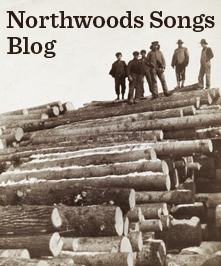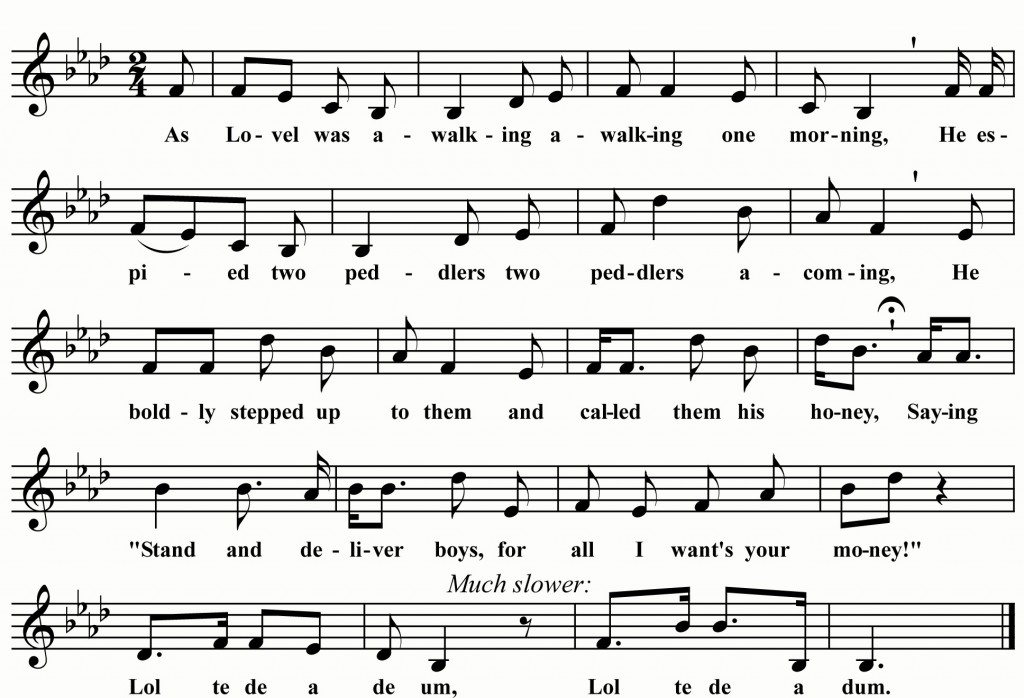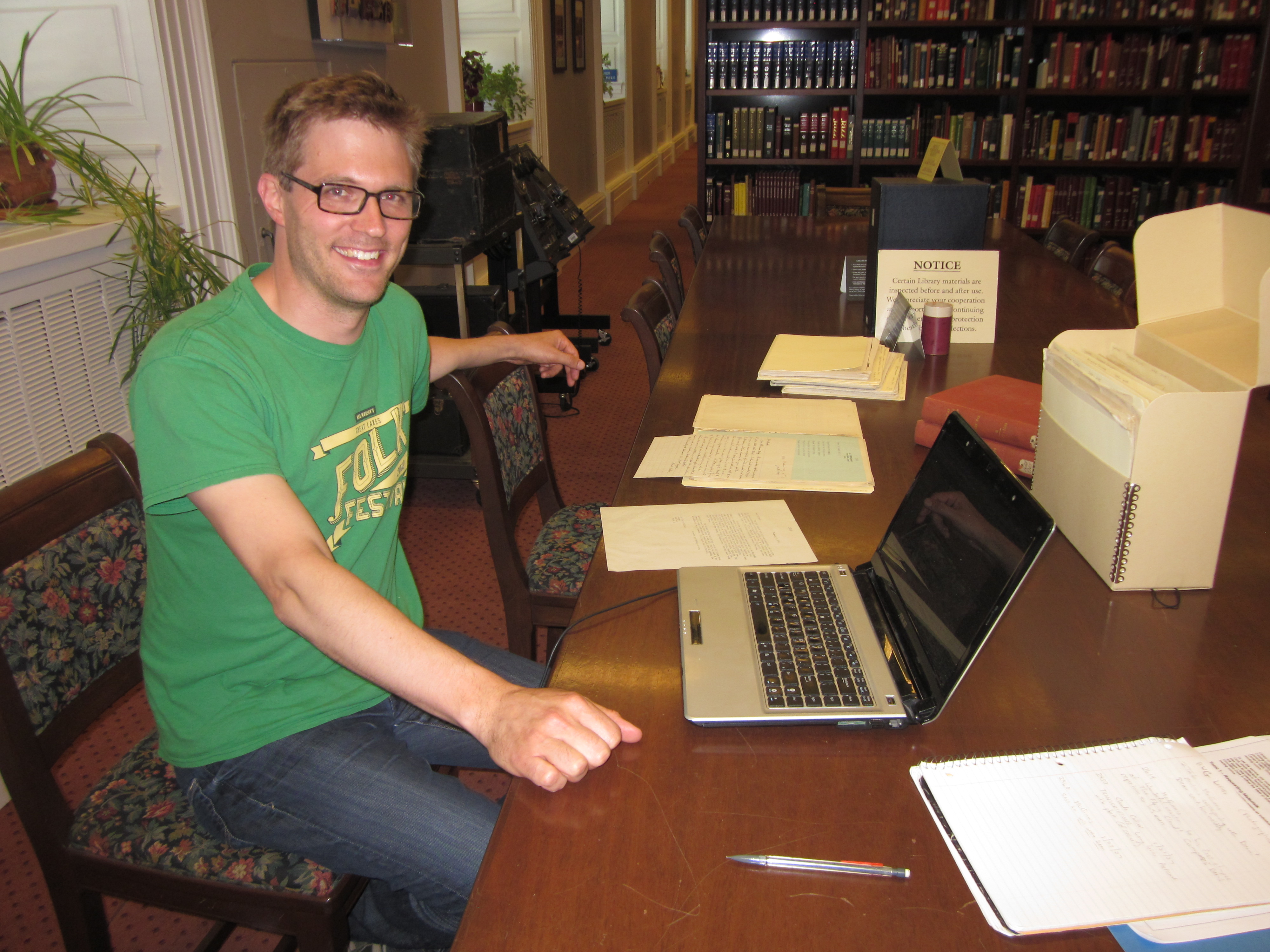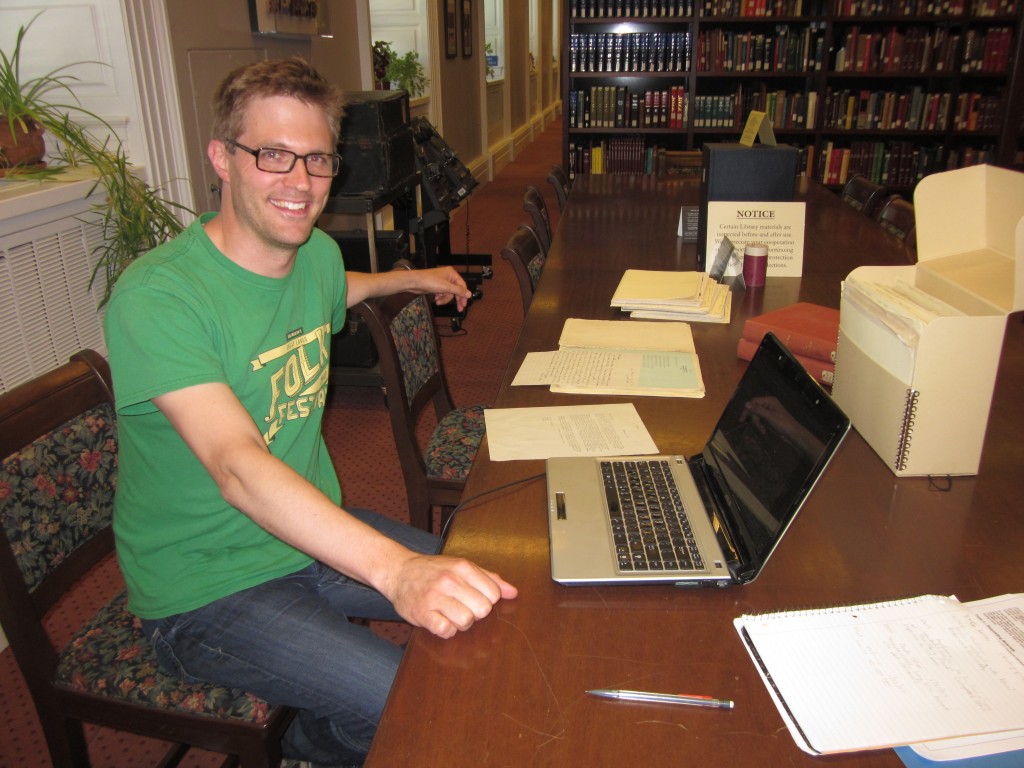A New Name and a New Project for 2016
 Brian Miller and Randy Gosa will now perform under the name The Lost Forty. We have a new site as well: www.thelostforty.com.
Brian Miller and Randy Gosa will now perform under the name The Lost Forty. We have a new site as well: www.thelostforty.com.
This site, www.evergreentrad.com, will continue to be the home of this blog (Northwoods Songs) along with other information and updates about my research, performing and teaching work.
Also, this month marks the launch of an exciting northwoods folksong revival project that will run throughout 2016: The Lost Forty Project. The Lost Forty Project will celebrate and make accessible forgotten field recordings of Minnesotan traditional singers recorded almost a century ago.
A bit about the name(s):
In November of 1882, a surveying crew in the north woods of Minnesota accidentally plotted Coddington Lake a half-mile further north than it was actually located. Today, the happy result is the Lost 40 Scientific and Nature Area—a rare and wonderful stand of old growth pine, some trees now over 300 years old, that was overlooked by logging companies due to the error. It is a breathtaking time capsule from Minnesota’s past.
Much of Minnesota’s early folksong traditions (including some songs as old as those trees) have been similarly overlooked. For almost ten years now, I have sought out the forgotten songs of farmers, Great Lakes sailors, lumbermen and saloon-keepers that carried Old World ballads to the North Star State back in the 1800s. These songs are what Randy and I perform as The Lost Forty… and a very special group of these songs is the focus of The Lost Forty Project.
In September 1924, pioneering folksong collector Robert Winslow Gordon traveled from Berkeley, California to Cambridge, Massachusetts with his Edison wax cylinder recording machine in tow. A month after arriving in Cambridge, Gordon wrote a letter in which he gave a brief account of his trip:
I made a very leisurely trip east with many stop-overs and side trips collecting material. I got some immensely good stuff up in northern Minnesota, lumber-jack material…[1]
The “good stuff” Gordon recorded on this September 1924 trip was overlooked for decades—much like the pine trees north of Coddington Lake. Gordon’s 1924 recordings of singers from northern Minnesota, documenting 47 songs, were preserved by the American Folklife Center at the Library of Congress but not cataloged as having anything to do with Minnesota. Gordon did extensive recording in North Carolina, Georgia and California and must not have kept notes on his brief adventure “up north.”
Through my research, I was able to track down and identify Gordon’s forgotten “Minnesota” recordings. This spring I will be creating The Minnesota Folksong Collection—an online digital library for the songs Gordon recorded from Michael Cassius Dean of Virginia, Minnesota and Reuben Waitstell Phillips of Akeley, Minnesota. The recordings will be free to listen to for anyone with an internet connection. These are some of the only existing recordings of traditional folksong from Minnesota and some of the earliest from anywhere in the Great Lakes region. The 47 songs include regionally-composed songs about woods work, Irish come-all-ye’s, songs about sailing the Great Lakes, railroading songs, deer hunting songs and old British ballads dating as far back as the 1680s—a similar age to those trees up by Coddington Lake! In addition to the recordings and background on Dean and Phillips, song texts and transcriptions will be provided to encourage people to learn these songs and make them their own.
As part of the project, Randy Gosa and I (The Lost Forty) will perform and teach our arrangements of songs from the collection at concerts and workshops throughout the state. We will also post online monthly videos of us performing our arrangements. The first video will be posted here on February 1st! In addition, an online “song forum” connected to The Minnesota Folksong Collection will invite others to post their own videos of themselves doing songs learned from the collection.
This project has been a dream of mine since July 2012 when, late at night while scouring a set of digitized newspapers for information about singer Michael Dean, I found an article implying the existence of these recordings. Seventy-five percent of the funding for this project is coming from a Folk and Traditional Arts Grant from the Minnesota State Arts Board. In February, I will be launching a crowdfunding campaign on Kickstarter to help make up the rest of the funding needed to make this dream a reality.
Please check back for more information on the launch of the Minnesota Folksong Collection site, the Kickstarter and to see the first song video when it posts on February 1st!
[1] Gordon, Robert W. Robert W. Gordon to C. L. Canon, October 31, 1924. Letter. From American Folklife Center, Gordon Manuscript Collections, Gordon Mss, #769.





